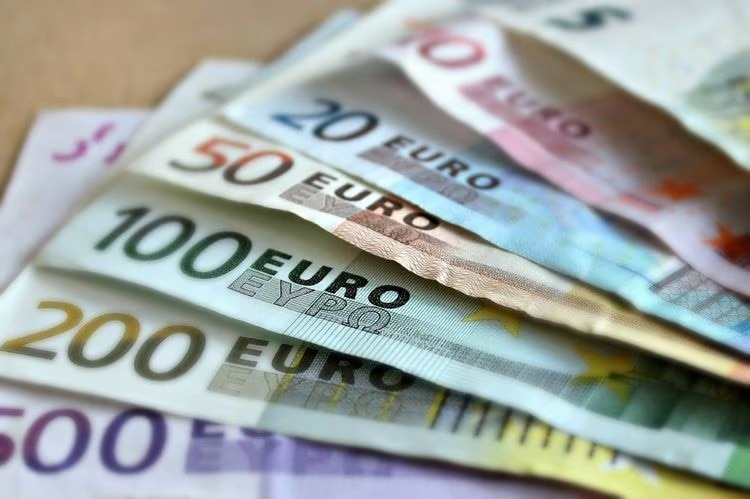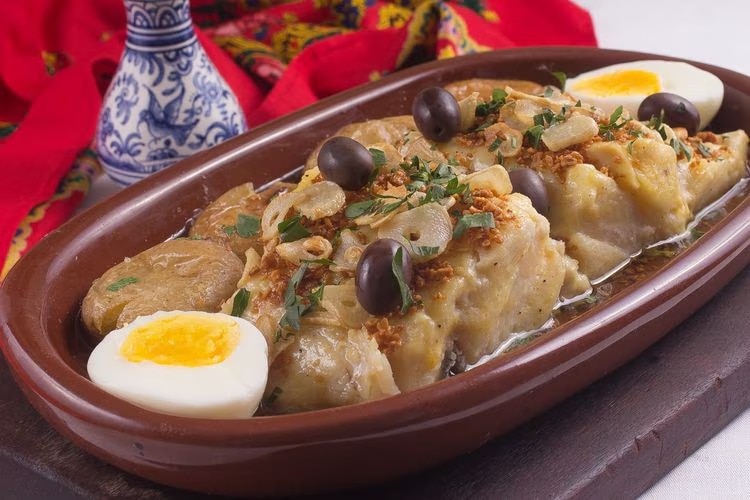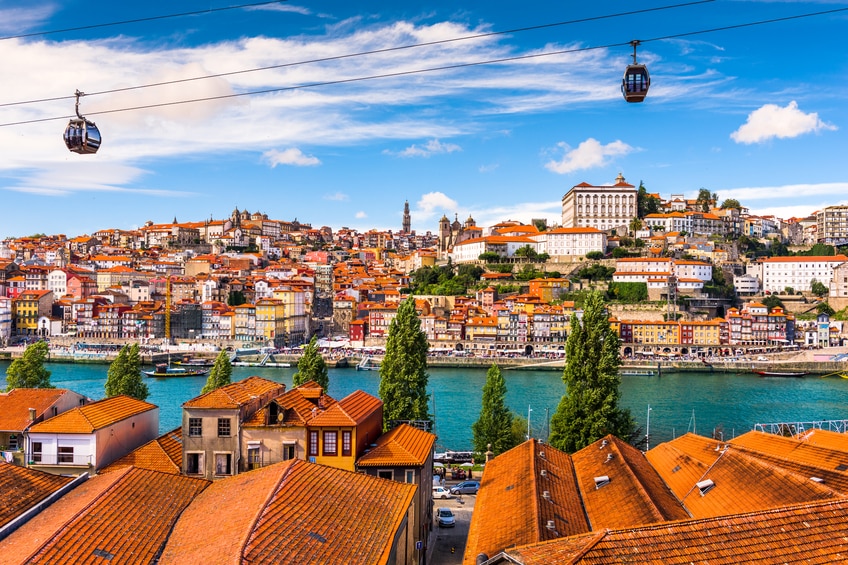-
2026/03/10
Los Angeles(LAX) -
2026/03/24
Lisbon
(Updated: August, 25, 2025 05:05)
Portugal Travel Tips and Information
Official Name
Portuguese Republic
Capital
Lisbon
Population
Country Code
Approximately 10.5 million
PT
Country Code (international calls)
+351
The flight time to Portugal is approximately 7~12 hours. Check the climate, currency, religion, manners, other information of Portugal below. Wishing you pleasant travels to Portugal.
Portugal is located on the southwest side of the Iberian Peninsula. Half of its land border is surrounded by Spain, while the other half is bordered by the Atlantic Ocean. Additionally, it has sovereignty over the Madeira and Azores archipelagos located offshore in the Atlantic Ocean.
Compare Airfares for Flights to Portugal
Compare Airfares for Flights to Portugal
Compare Airfares for Flights to Portugal
Compare Airfares for Flights to Portugal
Local Climate / Weather
Portugal has a Mediterranean climate, with mild, rainy winters and warm, dry summers, influenced by the Atlantic Ocean. In the southern Algarve region, winters are warmer, while northern areas like Porto and the Douro Valley experience cooler temperatures and more rainfall. ・Spring (March to May): A popular time to visit, with blooming flowers and pleasant temperatures between 15-25°C. Ideal for sightseeing in Lisbon, Porto, and scenic regions like Sintra. ・Summer (June to August): Portugal’s peak tourist season, with temperatures reaching 30-35°C in some areas. Coastal areas like the Algarve offer beach relaxation, while cities host outdoor festivals. Book accommodations early for the best rates. ・Autumn (September to November): With moderate temperatures and fewer tourists, fall is great for visiting vineyards during the grape harvest, especially in the Douro Valley. ・Winter (December to February): Cooler weather with temperatures around 10-15°C in Lisbon and Porto. Winter is ideal for exploring without the crowds, and Madeira is a warm winter escape with temperatures around 20°C.
Currency & Tipping
Currency
The official currency in Portugal is the Euro (EUR). Coins come in denominations of 1, 2, 5, 10, 20, and 50 cents, as well as 1 and 2 euros. Banknotes are available in 5, 10, 20, 50, 100, 200, and 500 euros. For the best rates, consider exchanging before your trip or withdrawing from ATMs once in Portugal.
Tipping
Tipping in Portugal is optional but appreciated for good service. Here are some guidelines: ・Restaurants: Leaving a tip of 5-10% of the bill is common if service is not included. In casual cafes, rounding up the bill or leaving a few coins is acceptable. ・Taxis: Rounding up to the nearest euro or adding 5-10% is a nice gesture but not required. ・Hotels: For porters, 1-2 euros per bag is typical. Housekeeping staff can be tipped 1-2 euros per day if staying multiple nights.
Useful Travel Information

Voltage & Electrical Outlets
Portugal operates on 230V voltage with a frequency of 50Hz. The standard plug types are Type C and Type F, which have two round pins. Travelers will need an adapter to use their devices, and it’s wise to check if voltage converters are necessary for electronics that don’t support 230V.

Internet Connectivity
Portugal has a well-developed internet environment with Wi-Fi available in most hotels, cafes, and public areas in cities. For reliable mobile internet, travelers can buy a local SIM card upon arrival from providers like Vodafone, MEO, or NOS. These SIM cards offer prepaid data plans that are budget-friendly and available at airports, convenience stores, and telecom shops.
Water for Consumption (Drinking Water)
The tap water in Portugal is safe to drink and of high quality in most areas. Many locals and tourists alike use tap water, although bottled water is also widely available in shops if preferred.
Culture, Religion & Social Etiquette
Culture
Portugal’s rich culture is influenced by its Mediterranean and maritime heritage, with traditional music, art, and cuisine playing a central role. Portuguese people are known for their warm hospitality and value respect in social interactions, making politeness and friendliness essential.
Religion
Catholicism is the dominant religion, deeply ingrained in daily life, customs, and national celebrations, such as religious festivals and feast days honoring saints.
Social Etiquette
Travelers should greet with a friendly “Bom dia” (Good morning) or “Boa tarde” (Good afternoon) and maintain courteous behavior, especially in religious sites, where modest attire is appreciated. This cultural awareness enhances interactions and enriches the travel experience in Portugal.
Food Culture
Portuguese cuisine offers travelers a unique blend of Mediterranean flavors, fresh seafood, and traditional spices that reflect Portugal’s rich history. From savoring bacalhau (salted codfish) and hearty caldo verde soup to enjoying grilled sardines by the coast, Portuguese dishes emphasize simplicity and quality ingredients. For an authentic experience, explore street food stalls and try pastel de nata, a custard tart loved for its creamy texture and flaky crust. Cities like Lisbon and Porto are home to renowned local restaurants like Time Out Market in Lisbon, featuring various Portuguese dishes, and Casa Guedes in Porto, known for its delicious pork sandwiches. With a mix of fine dining, family-owned eateries, and street food gems, Portugal’s food scene offers unforgettable flavors that cater to all tastes and budgets.
Major Tourist Attractions & UNESCO World Heritage Sites
Major Tourist Attractions
The capital city, Lisbon, is also known as the "City of Seven Hills," with its attractions scattered across several neighborhoods. A popular way to explore the city's landmarks is by riding the iconic trams up and down the hills. Must-see highlights include the Belem Tower overlooking the sea, the fortress of São Jorge Castle offering panoramic views of the city, and the Jerónimos Monastery, which stands as a testament to the Age of Discovery. Another important area is Rossio Square, located at the heart of Lisbon's city center. In northern Portugal lies Porto, the second-largest city, known for its beautiful views from its bridges and cable cars. Coimbra, a cultural city in central Portugal developed around its 13th-century hilltop university, is also a recommended destination. At the westernmost point of the Eurasian continent is Cabo da Roca (Cape Roca), where visitors can obtain a "Certificate of Arrival at the Westernmost Point." East of Cape Roca lies Sintra, a royal retreat and popular tourist destination.
UNESCO World Heritage Sites
Portugal is home to numerous World Heritage Sites, with all but one of them being cultural heritage sites. The exception is Madeira Island’s laurel forests, which is designated as a natural heritage site. Cultural Heritage Sites in Portugal include the Angra do Heroísmo Historic Center, Jerónimos Monastery and Belem Tower, Batalha Monastery, Christian Monasteries, Évora Historic Center, Alcobaça Monastery, the Sintra Cultural Landscape, Porto Historic Center, Prehistoric Rock Art Sites, Alto Douro Wine Region, Guimarães Historic Center, and the Pico Island Vineyard Landscape.
Travel FAQs
What is the safety like in Portugal? What should I be careful about?
In urban areas of Portugal, petty crime is on the rise. It's important to be cautious of theft in crowded places.
Is English spoken in Portugal?
In urban areas of Portugal, English is commonly spoken. You should be able to communicate easily at tourist attractions and restaurants.
What is the most popular airport to fly to in Portugal?
The most popular airport in Portugal is Humberto Delgado Airport located in the capital, Lisbon.
What is the best season to visit Portugal?
Portugal has a mild climate year-round, but the best time to visit is during the dry season from June to September, when the weather is more comfortable and there's less chance of rain.




